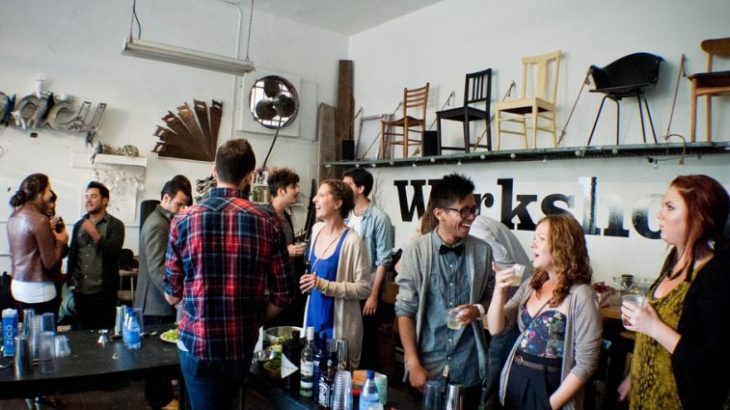Armstrong Williams, the well-known US-based political commentator, says that networking is an essential part of building wealth.
There is hardly anyone who will disagree with Williams’ view. Going one step ahead, Jay Samit, a digital media innovator and the Vice Chairman of Deloitte Digital, suggests networking as a way of life.
He says, “Networking is all about connecting with people. But then again, isn’t that what life is about? The more time you can find to get out of the office and build true friendships, the farther your startup will go. Entrepreneurs need to remember to spend as much time working on their business as they do in their business.”
Successful business leaders believe that networking is one of the most useful means to gain knowledge and let others know about your business. The more you connect with people, the more clients you create for your business. It also gives you the opportunity to learn from the experience of others.
The return on investing time in networking with right kind of people is much more than in any other activity. It is due to this reason a lot of countries hold global startup competitions or international tech events which see a convergence of talent from across the globe. Entrepreneurs, who understand its importance, attend events, workshops, and gatherings to get in touch with as many people as they can.
Coworking for Networking
One of the attractive features of the concept of co-working is its work culture of which networking is an inherent part. In a co-working space, entrepreneurs come from different skill-set and background, and they collaborate to achieve their respective goals. They are beginners and struggling to fulfill their dreams to make a difference in their societies. Co-working spaces open up great networking opportunities for more than one reason.
One of the uniqueness of networking opportunity in co-working space is that people meet and develop a relationship naturally without forcing each other to do so. Entrepreneurs come together primarily to work to achieve their goals. They don’t come just for networking. So networking happens in the process of working together. For instance, you might spill your coffee on the floor and say sorry to your co-worker, and he responds back, “It’s okay.” That’s how the conversation starts.
Similarly, two people might be heading for a cup of coffee, and the moment they reach the coffee dispensing machine; one would say, “After you please,” and the conversation sets in motion. You never know if this is a beginning of a long lasting relationship or a future business partnership.
People who work in co-working spaces say they network at unusual places such as corridors, stairs, etc. It’s like you reach out to someone for a small help and it converts into an exchange of pleasantries and much more than that after that. The natural networking happens in a relaxed atmosphere where you don’t come keeping in mind that you have to network with people.
Diversity Breeds Networking
In a co-working space, people come from diverse backgrounds with different social set up, education and training. As every individual is unique, their way of working is also not identical. This creates an encouraging atmosphere for networking, as everyone is curious to know about each other. The purpose of not to get benefit out of anyone’s position or background but it’s just the human nature.
When you know that the person sitting next to you is working on something innovative one like you, you would like to introduce yourself to him. You would be keen to know the reason for him to join a co-working space.
Since an entrepreneur gets an opportunity to meet with a new set of people in different work shift every time because of the dynamic clientele of co-working spaces, his networking area and opportunity remains broad and exciting.
Lively Atmosphere Promotes Networking
Co-working spaces motivate people to socialize because of their lively atmosphere. Networking becomes easy and comfortable if the atmosphere is relaxed and soothing. The static nature of workforce in a traditional office setup doesn’t give enough networking opportunity. You work with the same set of people every day. Interestingly, workers in a traditional office set up feel skeptic about networking with colleagues, seniors or juniors for different reasons.
The insecure atmosphere and internal politics discourage them from getting informal with each other. “I won’t share it with my colleague as he may take undue benefit of it,” is the most common thought runs in the minds of workers. If an employee hobnobs with his seniors, it’s seen as survival tactics. Senior officers will not engage in any conversation with his junior’s officers because of his seniority status.
Co-working spaces are free from all these constraints. The absence of working hierarchy, formalities, and job insecurity doesn’t bog down workers’ in co-working spaces.





